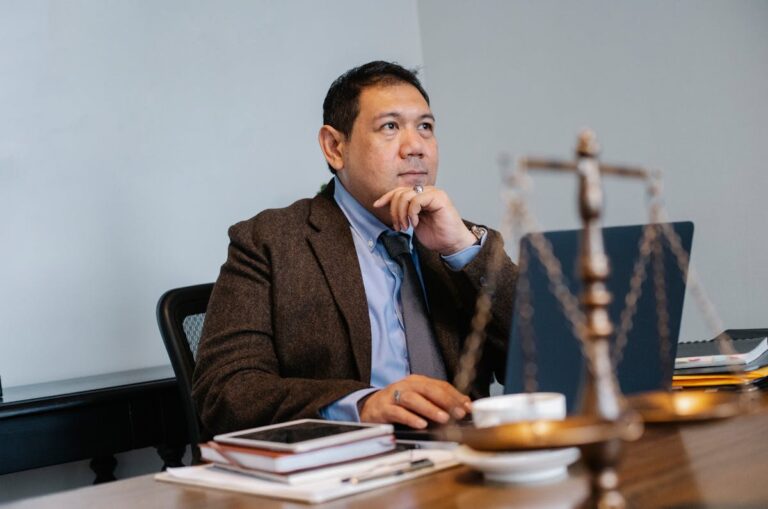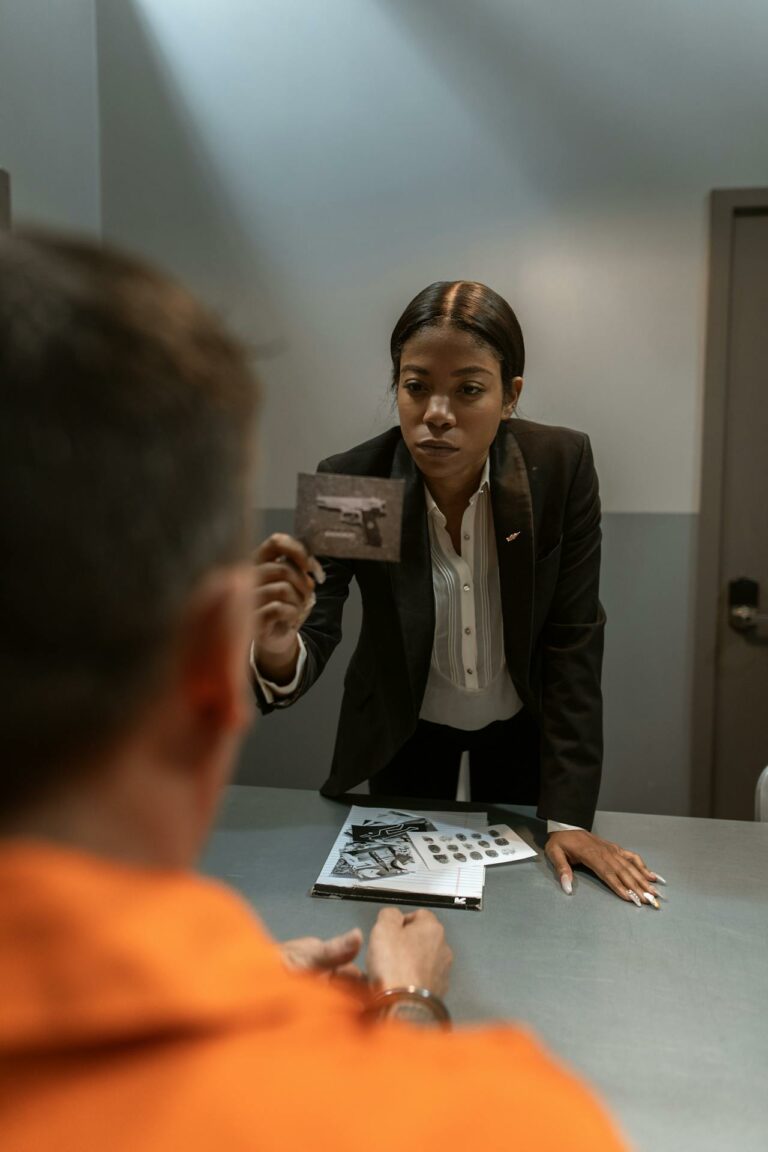Investigative services have become an integral part of the legal framework, markedly shaping the outcomes of both criminal and civil cases. Through the diligent gathering of evidence and the meticulous analysis of data, these services lend credibility to legal proceedings, often making the difference between conviction and acquittal, or liability and exoneration. However, the tactics and techniques employed by these services, and the ethical considerations they entail, are topics that warrant further exploration and discussion.
Understanding Investigative Services
A significant proportion of successful legal cases owe their victories to the often underestimated power of investigative services. These services, offered by professional service providers, employ a plethora of investigative techniques and tools, moulded by rigorous investigative training, to deliver high service effectiveness.
The effectiveness of these services is underpinned by meticulous case analysis. This involves an in-depth review of the available information, identification of gaps, and the strategic deployment of investigative tools to fill these gaps. Such an analytical approach increases the likelihood of case success, while adhering to professional standards that respect legal implications and protect client interests.
Investigative techniques vary, ranging from surveillance, interviews, document analysis, to digital forensics. These techniques are continually improved, guided by changes in law, technology, and societal norms. The selection of technique largely depends on case specifics, further underscoring the importance of case analysis.
Training is a cornerstone in equipping investigators with the necessary skills. It not only upgrades their technical proficiency but also instils a strong ethical framework, essential in maneuvering complex legal implications. Consequently, thorough training programs are integral to maintaining service effectiveness and upholding professional standards within investigative service providers.
Role in Criminal Case Proceedings
Investigative services play a pivotal role in criminal case proceedings, primarily through evidence gathering techniques and the witness verification process. The methodologies employed in collecting and analyzing evidence can greatly influence the outcome of a case, making this aspect of investigative services critical to judicial proceedings. Similarly, the process of verifying witness credibility is integral to establishing facts and ensuring fair and just proceedings.
Evidence Gathering Techniques
The essential role played by evidence gathering techniques in criminal case proceedings cannot be overstated. Effective use of these techniques can make the difference between a successful prosecution and a failed one, and they are a cornerstone of the investigative process.
This process typically involves a range of techniques, including:
- Forensic analysis: This involves the examination of physical evidence from a crime scene.
- Surveillance technology: This can provide real-time or recorded data about the actions and movements of potential suspects.
- Interview techniques: These are used to elicit information from witnesses, victims, and suspects.
- Digital evidence: This is increasingly important in a world where much of our lives are conducted online.
- Information sourcing and data analysis: These techniques involve gathering and interpreting information from a variety of sources.
Scene reconstruction and expert testimony are also essential parts of the process. A crime scene can be reconstructed using the evidence gathered, and expert witnesses can testify about this evidence in court. These elements, when combined with the evidence obtained through the techniques listed above, can provide a compelling case for prosecution.
Witness Verification Process
Building on the importance of evidence gathering techniques, one cannot neglect the significance of the witness verification process in criminal case proceedings. This process is vital in determining the witness credibility, serving as a backbone to the fact-finding mission of the court. Its systematic approach guarantees that the testimonies provided are not only credible but also reliable.
The witness verification process involves several stages, each meticulously designed to guarantee the highest degree of accuracy. Initially, the witness is interviewed, their statements are recorded, and these narratives are then cross-checked with the available evidence. This is a key step in establishing the eyewitness reliability.
In the subsequent stage, the background of the witness is thoroughly examined. This includes their past records, personal relationships, potential biases, or influences that may affect their testimonies. It is a rigorous process but serves an essential purpose: to filter out any misleading or false information that could jeopardize the proceedings.

Influence on Civil Case Outcomes
Although often overlooked, the role of investigative services in civil case outcomes is substantial and multifaceted. These services play an integral role in establishing civil liability, evaluating damages, facilitating settlement negotiations, processing insurance claims, and detecting fraud.
Investigative services contribute to: – Civil liability: Investigators gather evidence, often aiding in establishing the degree of responsibility in a case. – Damages evaluation: They assess the extent of the damage, providing accurate, objective data to calculate compensation. – Settlement negotiation: Their findings can considerably influence the negotiation process, leading to fair and equitable settlements. – Insurance claims: In many cases, investigators are responsible for scrutinizing insurance claims, identifying fraudulent activities. – Legal compliance and risk management: They guarantee that all actions and procedures comply with legal standards, contributing to effective risk management.
Furthermore, the perception of the jury can be swayed by the thoroughness and objectivity of the investigative services, thus influencing the verdict. The role of investigative services, consequently, extends beyond mere fact-finding, permeating several aspects of civil litigation, ultimately shaping case outcomes.
Techniques Used in Investigations
Delving into the techniques used in investigations, one finds a diverse array of methods employed to gather and analyze information. Surveillance methods, for instance, are widely used to observe suspect’s actions discreetly, aiming to gather evidence without alerting the subject. Forensic analysis is another crucial technique, involving the examination of physical evidence to establish facts pertinent to the case.
Digital investigations have become increasingly important in the digital age, with investigators exploring digital footprints and using data mining to uncover valuable insights. This technique often complements background checks, which provide an extensive view of an individual’s history, from criminal records to employment details.
Undercover operations are another essential investigative technique, usually employed when direct methods might alert the suspect or when deeper infiltration into criminal networks is required. Interviewing techniques, meanwhile, are critical for obtaining information from witnesses, suspects, and others related to the case.
Case Study: A Criminal Investigation
In the domain of criminal investigations, a case study provides a detailed examination of investigative services’ impact. A high-profile homicide case in a metropolitan city serves as an appropriate example. The investigative services applied several techniques, including forensic analysis and suspect profiling, to guarantee the case’s successful resolution.
The following bullet points elaborate on the essential role of these services:
- Forensic analysis: The analytical process revealed critical evidence, such as DNA and fingerprints, greatly aiding in identifying the perpetrator.
- Suspect profiling: Behavioural analysis helped generate a suspect profile, leading to targeted searches and narrowing down potential suspects.
- Crime scene management: The meticulous management and preservation of the crime scene prevented contamination, preserving valuable evidence.
- Witness interviews: Skilful interrogation of witnesses yielded useful information and corroborated evidence gathered.
- Collaboration with other agencies: The seamless collaboration between local police, federal agencies, and forensic laboratories expedited the case’s resolution.
This case study underscores the considerable impact of investigative services on criminal cases. The combination of forensic analysis, suspect profiling, and other investigative techniques led to the successful apprehension and prosecution of the criminal, demonstrating the crucial role these services play in upholding justice.
Case Study: A Civil Investigation
Shifting our focus to civil investigations, a compelling case study presents itself in the form of a complex corporate fraud investigation. This case involved a large corporation suspected of fraudulent activities, leading to substantial financial losses for stakeholders.
Private investigators played a crucial role by meticulously examining the company’s financial records, employee communications, and business transactions. Their detailed analysis revealed patterns of deliberate financial misrepresentation and manipulation, shedding light on the extent and nature of the fraud.
The private investigators’ findings were important for the ensuing civil litigation. Their thorough documentation and presentation of evidence supported the plaintiffs’ claims of fraud, providing a robust foundation for their case. In addition, the investigators’ ability to clarify complex financial information was instrumental in making the evidence comprehensible for the court, aiding in a more accurate evaluation of the case.
This case study underscores the essential role of investigative services in civil cases. Their expertise in gathering and interpreting evidence can greatly influence the trajectory of civil litigation. This instance particularly demonstrates how private investigators can unravel complex fraud schemes, contributing to the pursuit of justice in the civil legal system.
The Ethical Dimension of Investigations
Maneuvering the intricate landscape of investigative services, it becomes essential to address the ethical dimension inherent in this line of work. This dimension encapsulates a myriad of elements, ranging from investigative integrity and ethical guidelines to confidentiality standards and professional accountability.
The ethical dimension of investigations is vital as it sets the framework for:
- Upholding investigative integrity, guaranteeing that the investigative process is carried out with honesty and fairness.
- Adherence to ethical guidelines, maintaining a high standard of conduct in all investigative operations.
- Confidentiality standards, protecting sensitive information during and after the investigation.
- Professional accountability, assuming responsibility for one’s actions and their impacts on the case.
- Bias mitigation, preventing any personal prejudices from influencing the investigation.
Moreover, transparency requirements, consent issues, and reporting ethics are also paramount. Transparency cultivates trust and credibility, while consent is a fundamental ethical principle promoting respect for individuals’ rights. Reporting ethics, on the other hand, guarantees that findings are communicated accurately and without manipulation. Consequently, the ethical dimension is a cornerstone of investigative services, greatly impacting the outcome of criminal and civil cases.
Future Trends in Investigative Services
While the ethical dimension sets the foundation for investigative services, it is also worth exploring the trajectory these services are likely to follow in the coming years. As per future predictions, notable advancements in technology are expected to shape the landscape of investigative services, particularly in the areas of private investigations, surveillance techniques, and digital forensics.
Data analytics, for instance, will play a progressively significant role in analyzing complex cases, facilitating a more precise and efficient investigative process. Investigative training, too, will likely evolve to incorporate these technological advancements, equipping investigators with the necessary skills to navigate the digital landscape.
Additionally, we can anticipate a surge in market demand for investigative journalism, driven by an increasingly informed and discerning public. This necessitates a mastery of digital forensics and a strong understanding of the legal implications involved in investigations.
In the field of private investigations, surveillance techniques are set to become more sophisticated, employing cutting-edge technology to yield more accurate results. With these shifts, the industry must strike a balance between leveraging technology and adhering to legal and ethical guidelines, to guarantee the credibility and integrity of investigative services in the future.
Frequently Asked Questions
How Do Investigative Services Maintain Confidentiality in Sensitive Cases?
How do investigative services uphold case sensitivity and information security? They implement rigorous protocols and use advanced technologies to maintain strict confidentiality, ensuring sensitive information involved in cases is securely managed and accessed only by authorized individuals.
What Is the Average Cost of Hiring Investigative Services for a Case?
The average cost of hiring investigative services depends on various cost factors such as the complexity of the case, the duration of the investigation, and the types of services required, among other considerations.
What Qualifications Do Individuals Need to Become a Professional Investigator?
To become a professional investigator, individuals typically need a high school diploma or equivalent. Further educational requirements may include criminal justice studies. Professional certifications, such as Certified Legal Investigator, can enhance credibility and expertise.
How Do Investigative Services Handle Potential Conflicts of Interest?
Investigative services mitigate potential conflicts of interest through ethical guidelines ensuring impartiality and client transparency. It’s essential to maintain professionalism, hence any conflict is immediately disclosed and action is taken to eliminate its potential impact.
Can Investigative Services Be Used for Personal Matters, Such as Missing Persons?
Yes, investigative services can be utilized for personal matters, including missing persons cases. Private investigators offer special expertise and resources that can greatly assist in location efforts, tracing activities, and evidence gathering.






